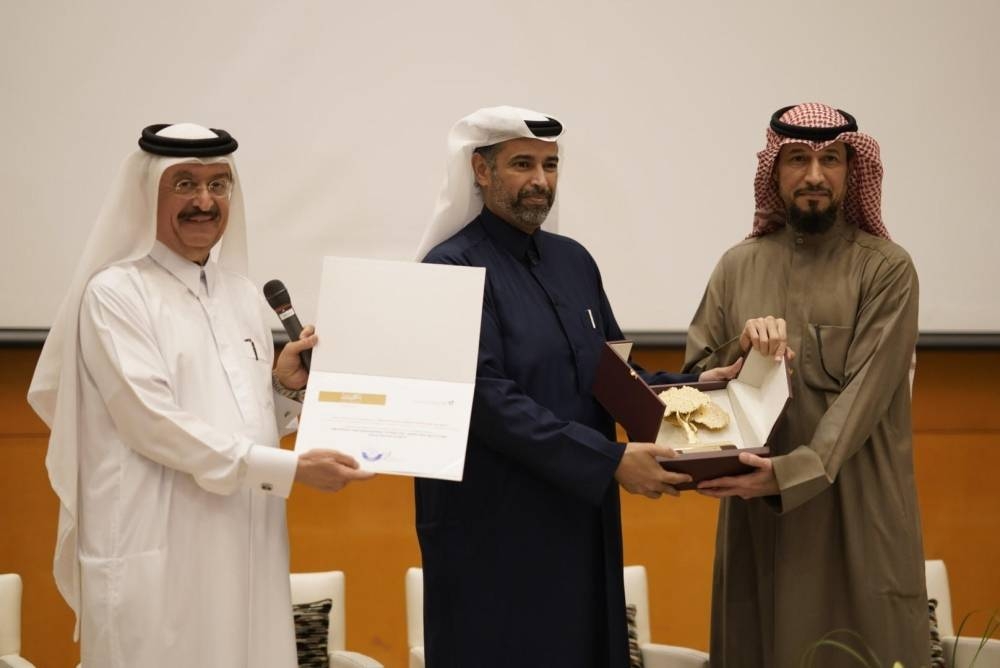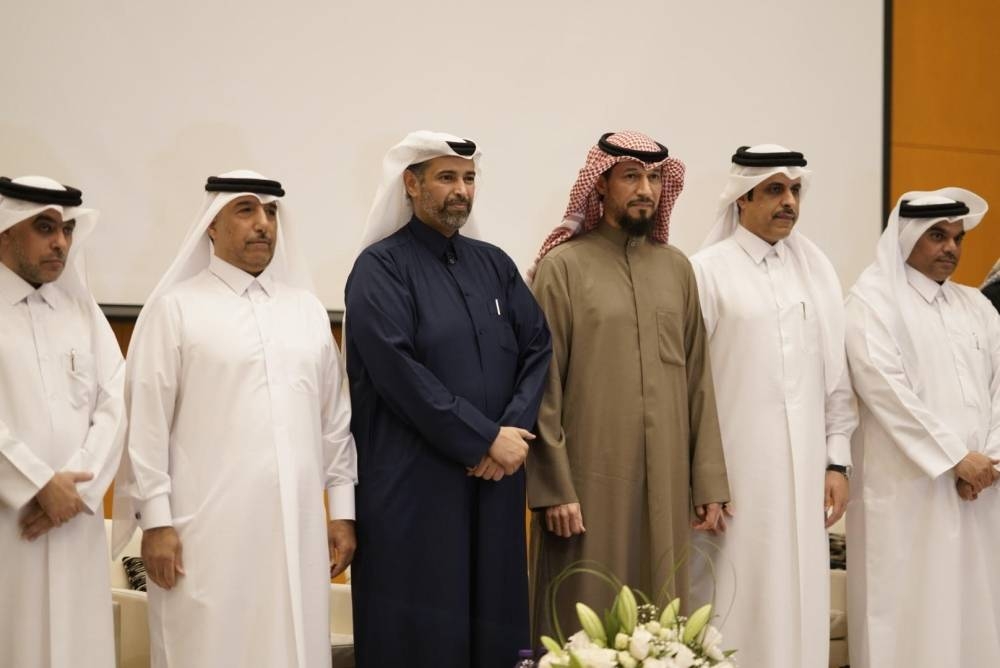HE the Minister of Environment and Climate Change Sheikh Dr Faleh bin Nasser bin Ahmed bin Ali al-Thani stressed Monday that the ministry seeks to expand research and scientific experiments to manage wastewater and salts discharged from desalination plants.
In statements on the sidelines of a scientific symposium on treating and managing wastewater and salts from desalination plants, which was organised by the Ministry of Environment and Climate Change, HE the minister told journalists that the research related to the topic of the symposium was among the solutions sought by the ministry in cooperation with the competent authorities, with the aim of finding optimal solutions for the water that comes out of the desalination plants, extracting the salts in them, and working to benefit from them, because of their economic aspect of interest to industrial entities and companies.
He emphasised the importance of such projects and scientific research that concern all GCC countries, considering that the Gulf is a semi-enclosed marginal sea, pointing out that the salty and wastewater that occur as a result of desalination plants represents a major challenge to all the GCC countries, because it causes a rise in temperature and an increase in concentrated salts in the Gulf waters, which affects marine life, in addition to the harmful impact on the environment in general as a result of high salinity.
The Ministry of Environment and Climate Change seeks to expand such research and experiments that have yet been proven successful on a small scale, as well as bringing together the relevant research and scientific authorities and private companies to work on applying them in a matter that serves the GCC countries, in addition to extracting hydrogen as the energy of future, HE the minister said.
On the other hand, he explained that the cause of the phenomenon of fish mortality from time to time is not limited to high temperature, indicating that the importance of this research also lies in reducing the salinity of sea water, and thus reducing fish mortality.
Environmental expert and engineering advisor at the Ministry of Environment and Climate Change Dr Mohamed Saif al-Kuwari, said that lots of scientific research and studies specialised in water have shown that desalination of sea water is a major source of fresh water in many parts of the world, pointing out that the countries bordering the Gulf depend heavily on desalination of sea water for fresh water, and that they contribute 33% of the global desalination capacity.
In his speech at the symposium, Dr al-Kuwari noted that the disposal of brine produced by desalination plants into seawater was a very serious environmental issue, explaining that it contained high salinity, high temperature, and residual chemicals from pre-treatment processes, causing potential damage to marine and underground habitats, which confirmed that the management of highly concentrated saline solution has posed technological, economic and environmental challenges.
He also indicated that in light of such challenges, the Ministry of Environment and Climate Change decided to discuss this highly significant environmental issue, especially as it falls under the third axis (water) of the Qatar National Environment and Climate Change Strategy, which stipulates that regular and effective monitoring of all water sources (groundwater, seawater and potable water) must be done by the ministry.
The Ministry of Environment and Climate Change will form a scientific and technical committee that will consist of several scientists, experts and advisors from academic institutions and officials from government agencies, institutions and relevant bodies, as well as some of the participants in the symposium, to develop a comprehensive and applicable plan for the treatment and management of rejected wastewater and salts generated from desalination plants explaining that this plan will include recommendations, practical suggestions, ideas, information and data that will be discussed in the symposium and serve the country and the environment.
On this occasion, HE the Minister of Environment and Climate Change honoured some of the officials, researchers and experts who participated in the symposium.
Prof Bader Shafaqa Al Anzi, a Kuwaiti researcher, said studies are underway to find solutions for the rejected brine from desalination plants, which affects the marine environment.
Chairman of the Gulf Organisation for Research and Development (GORD) Dr Yousef bin Mohamed Alhorr highlighted GORD Institute's research project that uses desalination waste brine for the production of a gypsum plaster alternative.
He said Carbonate-Based Plaster is GORD's patented sustainable gypsum plaster board alternative of comparable/superior performance, produced from carbon capture and mineralisation processes using more than 30% of CO2 by weight.
Dr al-Kuwari reviewed scientific research and studies conducted by scientists around the world and the Gulf region over the past 30 years to find solutions to address this problem that affects marine life, which makes seabeds very salty and unfit for fish to live.
Qatar
Qatar to turn desalination waste into a useful resource
The Ministry of Environment and Climate Change will form a technical committee to develop a comprehensive and applicable plan for the treatment and management of rejected wastewater and salts discharged from desalination plants


